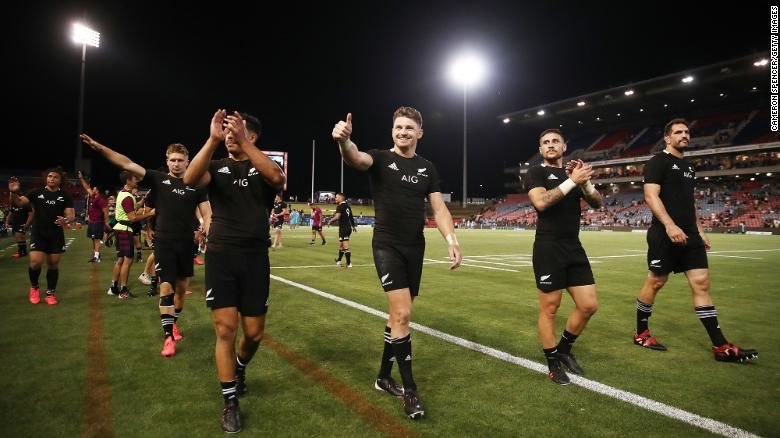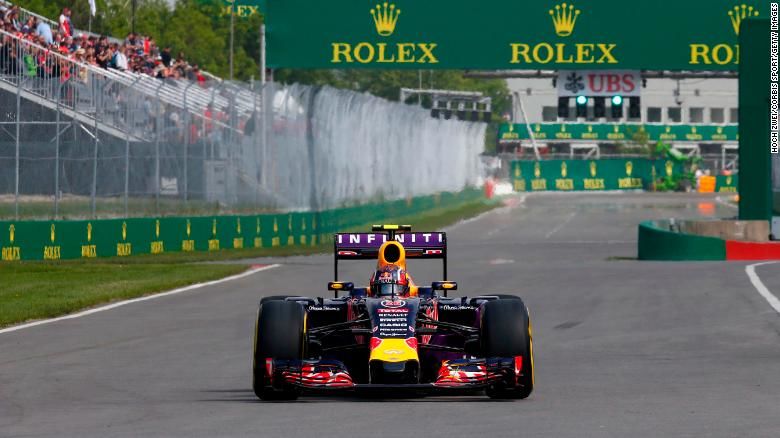
Private equity is targeting sports. Now fans and players are pushing back
So news that Silver Lake, a private equity firm based in California, is looking to buy 12.5% of the revenue generated by the All Blacks, the fearsome national team that's dominated the global sport for decades, has sparked a fierce debate in the country of 5 million.
"This is truly dreadful," New Zealand actor Sam Neill, known for his role in the "Jurassic Park" franchise, tweeted earlier this week. "The [All Blacks] are in danger of becoming just another bloody corporation."
Last week, the provincial unions that govern the sport in New Zealand gave the deal, which would see Silver Lake invest a much-needed $282 million, their unanimous approval. But sign-off is still needed from top players, who have voiced concerns about handing over even minority control.
"It's not about the money," All Blacks veteran Dane Coles said in an interview with local media. "It's about leaving the game in the best hands, and having the future as bright as we can." Silver Lake, which has $79 billion in assets under management, declined to comment for this story.
The standoff is the latest example of fans and players pushing back against the big money flowing into sports from billionaires, corporations and investors,
who some accuse of prioritizing profit over tradition. Fans notched a major victory in this fight last month, rebelling over a planned European Super League that would have enriched a small number of owners but ran counter to the traditions of European soccer.
Private equity firms, which buy and restructure businesses in hopes of turning a profit, stand at the vanguard of sports investing. They're targeting teams, tournaments and governing bodies, promising much-needed funding and business acumen. But in some cases, they're investing over the objections of wary fans.
"You found with the Super League that fan power is very important," said Adam Sommerfeld, a managing partner at Certus Capital, which advises teams, leagues and private equity firms on potential deals.

Where private equity comes in
The coronavirus pandemic left arenas around the world empty and forced the cancellation of hundreds of events, stretching the finances of many sports teams and their governing institutions. At the same time, media giants like Disney (DIS) and Amazon (AMZN) are increasingly interested in securing the rights to broadcast games and matches, which could give them access to huge and committed fan bases willing to pay for streaming.
That's encouraging many sports groups to take another look at offers from private equity firms, who promise cash infusions and business know-how in exchange for chunks of profitable media deals.
Recent rule changes from Major League Baseball and the National Basketball Association have opened up new opportunities in the United States. Earlier this year, RedBird Capital Partners and LeBron James announced a stake in Fenway Sports Group, which owns the Boston Red Sox and Liverpool Football Club.
There's also been a flurry of action in Europe, where sports tend to be less centralized and the rules on ownership are looser. Last December, US firm ALK Capital acquired a majority position in the Burnley Football Club, which plays in England's Premier League. In March, Luxembourg-based CVC — long the dominant private equity player in the sports industry — added to its sizable portfolio of rugby holdings by taking a minority stake in Six Nations, one of the sport's top competitions.
CVC is also pursuing deals with Serie A, Italy's top soccer league, and South Africa's rugby body. Australia's rugby organization recently announced it's looking for private equity buy-in, too.
"It's been just manic," Sommerfeld said, noting that in the wake of the pandemic, private equity firms are looking at "very" competitive prices.
In a report on the sports industry published by PwC, the consulting firm noted that the pandemic "severely tested" the financial model for sports, which is "characterized by short-termism and fragile cash flows."
PwC added, "This underlying vulnerability, combined with a decline in financial valuations, has further boosted the existing interest of private equity funds, which have become increasingly active and seeking opportunities for investment."
While the strategies that private equity firms bring to the table for reviving sports businesses, such as tackling fragmentation and improving access to digital content, may not be novel, they do bring expertise in execution, said Oliver Gottschalg, a professor at HEC Paris business school who focuses on private equity investments.
"If private equity is pretty good at something, in tens of thousands of cases, it's coming in and getting people to push [the] political and ego stuff aside," Gottschalg said.
The investments can also be extremely lucrative. In its decade of ownership of Formula 1, CVC earned massive returns. The racing league was worth $2.5 billion in 2006 when CVC bought in. When it sold to Liberty Media, it was worth $8.1 billion.

CVC's ownership of Formula 1 wasn't without controversy, according to Caroline Reid of Formula Money, an independent industry researcher.
While major teams abandoned plans to form a breakaway series once CVC took the reins, the schedule increased during its tenure, requiring additional travel. And while CVC's efforts to turn Formula 1 into a truly global sport helped dramatically boost revenue and prize money for teams, some longtime European fans bristled at efforts to court newcomers in places like Singapore.
During that time, Formula 1 also burnished its image as a playground for the elite, signing deals with sponsors like luxury watchmaker Rolex.
"Financially, it's difficult to fault what CVC did," Reid said. "Obviously there are issues with commercializing a sport, and smaller people can feel like they're being left out."
Fans and players push back
Similar concerns are sparking pushback from rugby fans in New Zealand. Some worry that teams could be pressured to play a greater number of physically intense matches in front of international crowds, though proponents of the deal note there would be little gained by jeopardizing player welfare.
The sport's central role in the national consciousness, and the widespread allegiance to the All Blacks, has made the debate even more fraught.
"I support the All Blacks as our national team. Selling part of it offshore is wrong — it tarnishes everything for me forever," said Rob Suisted, a 51-year-old professional photographer based in Wellington, New Zealand.
Before games, the All Blacks famously perform the haka, a ceremonial dance from indigenous Maori culture. In a letter from late January seen by CNN Business, the New Zealand Rugby Players Association pointed to "an inherent risk of real or perceived cultural misappropriation given Silver Lake is an Anglo-American private equity firm." The memo was signed by players including All Blacks Captain Sam Cane.
But New Zealand Rugby, which controls the All Blacks brand, needs the cash. The country's love affair with rugby has been in decline for decades, and some All Blacks games no longer sell out, according to Steve Jackson, a professor at the University of Otago in New Zealand who specializes in the socio-cultural analysis of sports.
The pandemic has made matters worse, sending New Zealand Rugby to a roughly $25 million loss in 2020, far worse than its loss of $5.4 million in 2019.
Those in favor of the deal note that funding is crucial to support women's rugby, as well as efforts to foster talent in local communities.
"Why are we doing this deal? The New Zealand Rugby setup means we lose money 11 years out of 12," New Zealand Rugby Chair Brent Impey said in a recent radio interview. A significant portion of the group's revenue, he emphasized, is spent on keeping top players from going to teams in Japan or the United Kingdom that will pay them more.
Impey said funding from Silver Lake will allow New Zealand Rugby to create a digital platform that will provide access to passionate fans all over the world.
He urged New Zealanders to check out the NBA's website for inspiration.
Andrew Wells, a 26-year-old fan moving from Wellington to London, feels "cautiously optimistic" about this plan. He's heartened that Silver Lake — which also owns 10% of the Manchester City Football Club — would be taking a minority stake, limiting its control over the game. He sees the NBA's growing global clout as a good model.
"I'd be much more concerned if it was [a] 51% [stake]," he said.
Getting the deal done will require approval from the player's association, however. While the group has expressed confidence an agreement can be reached, it's also proposing an alternative: floating a 5% stake of New Zealand Rugby's revenue to the public, which it estimates could raise $155 million at the valuation assigned by Silver Lake.
According to Gottschalg, there's good reason to think a private equity firm like Silver Lake is well aware of the risks of failure, especially with last month's uproar over the Super League still fresh.
The bid by a dozen of Europe's top soccer clubs to form a breakaway competition all but collapsed in 48 hours following pushback from the sport's governing bodies, the elected leaders of France and Britain and huge numbers of fans. JPMorgan Chase (JPM), which was financing the deal, later made an apology, saying it had "misjudged" how it would be viewed by the wider football community.
The private equity industry "is not the most popular," Gottschalg said. "The last thing they need on their track record is 'We're the ones who brought down sports industry XYZ.'"
Private equity has a vested interest in keeping fans happy, since doing so would help grow revenue, he added. But it's safe to assume there are times in which their interests may diverge.
"The incentives for the private equity firm don't revolve around making the spectator happy ... [unless it] makes them pay more," Gottschalg said.











